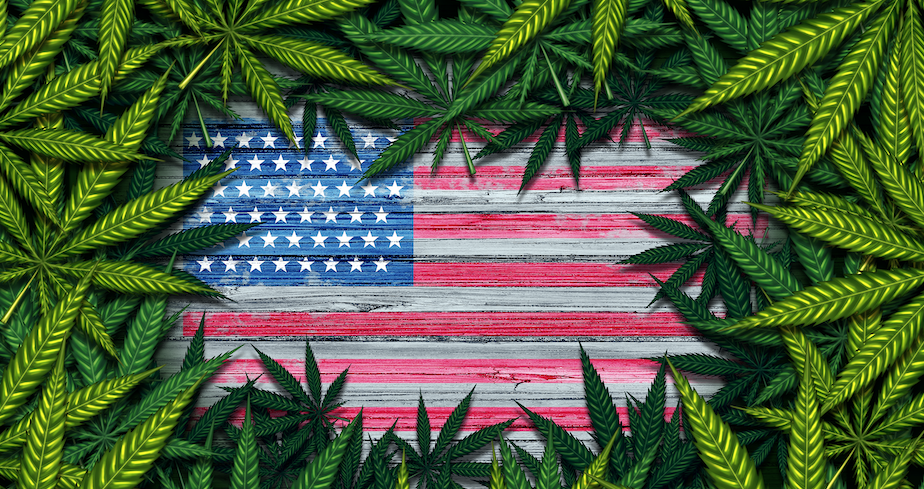11.21.2025
Sausage casings bulletin, November 21, 2025

...

By now, readers may have discovered the biggest winner in yesterday’s elections: cannabis. Every ballot initiative in the US succeeded by a healthy margin, sending a succinct message to lawmakers about the electorate’s view on the War on Drugs. Not only does this election outcome send a message, but the billions in tax revenues reaped by select states also sends a message, one that lawmakers – and voters – are paying attention to. This is an advantage for MJ, where the revenue potential currently exceeds that of other cannabinoids like CBD. Hemp prices reflect this lack of demand but are artificially constrained by a lack of clear policy.
Massachusetts MJ sales have exceeded half a billion in revenues for 2020, a 24% increase over 2019. They were even closed for two months because of COVID. Tax revenues there crossed the $122 million mark as of June, reflecting the two-year period since the program’s inception. As these markets establish themselves, the economic impacts beyond the cannabis bubble are noteworthy.
Money is the most reliable ambassador for MJ and hemp. A wide range of professional services benefit from both, as does construction, and ag machinery manufacturers/dealers. Farm supply stores, many of whom struggle to provide services in areas where agriculture has dwindled, have enjoyed record sales due to hemp production. This has a marked influence on the acceptance of hemp or MJ as a crop, when one’s revenues are derived from some aspect of production or marketing cannabis products, or in many cases, something ancillary and unrelated.
This year, roughly $3.2 million has been spent on lobbying by companies, primarily MJ operators. It also includes companies like Canopy Growth, who operate on either side of .3%, and CBD only companies like Charlotte’s Web. Ohio based Scott’s Miracle-Gro is one example of a conventional horticultural supply company that has lobbied in favor of MJ legalization. They were the major financial backer for New Jersey’s recent initiative, spending a reported $800,000. Their subsidiary, Hawthorne Gardening is a cash cow for the company, serving a massive base of enthusiasts that use a range of lighting, ventilation and inputs for home growing. Many hemp producers, particularly those focused on craft flower production, use Hawthorne products. Hemp has been an economic driver for companies like Hawthorne, but also other companies that have traditionally served agriculture. Markets developing as a result of hemp legalization will continue to gather momentum as more participants join, add value, and increase efficiencies.
Surprisingly, historically cannabis unfriendly South Dakota passed measures to allow for both medical and recreational MJ yesterday. Their legislature struggled to put together a hemp program, but following yearlong standoff between Gov. Kristi Noem, they finally passed SD House Bill 1008 in March. Producers ultimately missed out on 2020 but are on track for 2021 cultivation under recently approved USDA Industrial Hemp Plan. This means that hemp production was legalized a mere 7 months and change before both medical and recreational MJ in South Dakota.
Tax revenues are an obvious bright spot for lawmakers on the state level, but the federal government will also look to capitalize on the industry, which it is, and will, through payroll taxes. New York and Pennsylvania must now navigate the forces that the New Jersey program will put on them because of proximity. Bleeding tax revenues to the neighboring state will not be popular with NY or PA legislators. Both states have gathered steam on the MJ legalization front, as we’ve commented on previously in the Hemp Bulletin. The reason MJ policy is so pivotal for hemp operators, is that all of the onerous THC requirements for hemp producers rest on the presumption of illegal MJ.
Even smaller steps forward, like passage of the SAFE Banking Act would benefit hemp companies immeasurably. However, it is looking like we might have a South Dakota situation, with MJ being legalized federally before hemp banking is! Of course, banking hemp is not illegal, but it is far from normalized, because of long established practices for risk aversion and reporting by banks. CBD continues to be whipsawed around by global regulations, oscillating between fully legal innocuous dietary supplement and forbidden narcotic.